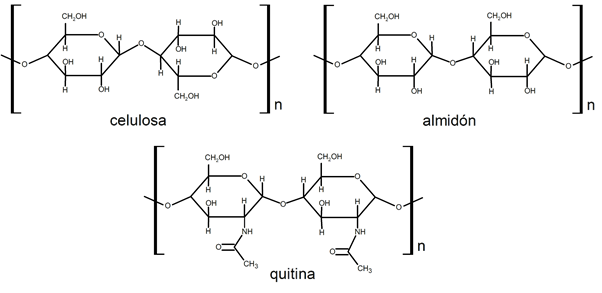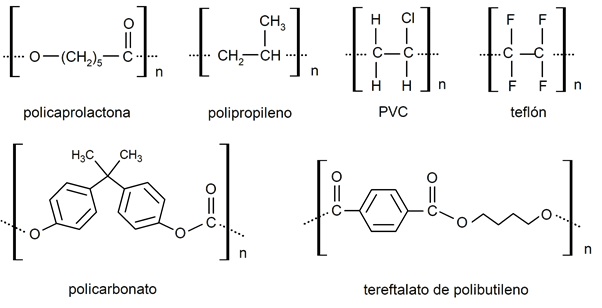40 Examples of Natural and Artificial Polymers
Miscellanea / / July 04, 2021
The polymers They are macromolecules that are formed by molecules smaller (monomers), which are linked together by covalent bonds. On organic chemistry, The process that monomers go through to form a chain and form a polymer is called polymerization.
Polymers can be classified according to different criteria: their chemical composition, their properties, their thermal behavior or their origin. According to this last criterion, polymers can be natural, semi-synthetic or artificial.
Natural polymers
The natural polymers They are those that come from nature, that is, their existence does not depend on the intervention of human hands. For example: DNA chains, proteins, cellulose, starches.
These polymers, also called biopolymers, fulfill essential functions for the survival of the living beings.
Semi-synthetic polymers
The semi-synthetic polymers They are the result obtained by transforming natural polymers through chemical processes. For example: nitrocellulose, etonite.
These first two groups have a similar composition, since both are made up of similar monomer chains.
Artificial polymers
The artificial polymers They are obtained industrially by handling organic monomers and were created by man to satisfy specific needs. For example: Teflon, nylon, polyethylene, polyvinyl chloride (PVC).
They make up a large part of our cars, toys, paints, furniture, and rubber goods.
Examples of natural polymers
| Silk | Lignin | Starch |
| Rubber | Chitin | Cellulose |
| Cotton | Wool | Nucleic acids |

Examples of semi-synthetic polymers
| Nitrocellulose | Etonite | Vulcanized rubber |
Examples of artificial polymers
| Polystyrene | Polyester | Polysulfones |
| Polyacrylonitrile | Polyethylene terephthalate | Polyurea |
| Polyanhydrides | Polyethylene oxide | Thermoplastic Polyurethane |
| Polycaprolactone | Polypropylene | PVC |
| Polycarbonate | Polydimethylsiloxane Polysiloxanes | Silicones |
| Polycycloctane | Polybutylene Terephthalate | Teflon |
| Polyvinylchloride | Rayon |

Follow with:



